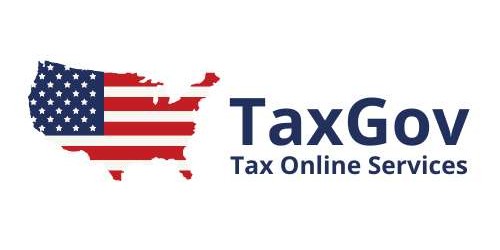Understanding the ITIN and Its Purpose
Understanding the ITIN and Its Purpose is essential for individuals who need to comply with U.S. tax laws but are not eligible for a Social Security Number (SSN). The Individual Taxpayer Identification Number (ITIN) is issued by the Internal Revenue Service (IRS) to help ensure that taxpayers are paying what they owe. An ITIN is typically used by foreign nationals, resident aliens, and other individuals who have tax filing obligations but are not eligible for an SSN. It is a nine-digit number starting with the number 9 and specifically designed to process tax payments and refunds accurately. While an ITIN does not give an individual the right to work in the U.S. or provide eligibility for Social Security or other benefits, it remains crucial for fulfilling tax responsibilities.
What Is a Tax ID and Who Needs It?
What Is a Tax ID and Who Needs It? concerns both individuals and businesses required to report their financial affairs for tax purposes in the U.S. A Tax Identification Number (TIN) is an overarching term used to denote various types of identification numbers issued by the IRS or the Social Security Administration (SSA). The most common forms of tax IDs include the Social Security Number (SSN) for individuals and the Employer Identification Number (EIN) for businesses. The need for a tax ID arises from obligations to report income, pay taxes, and claim certain tax benefits or exemptions. Whether you’re a sole proprietor, nonprofit, corporation, or individual with specific withholding taxes, a proper tax ID is a fundamental part of abiding by U.S. laws.
Need help getting your ITIN?
We can help you apply for your ITIN quickly and easily. Let our team handle the process for you.
Key Differences Between ITIN and Tax ID
Key Differences Between ITIN and Tax ID revolve around their primary purpose, eligibility, and issuance. While both numbers serve to identify taxpayers and are used for tax processing, the ITIN applies specifically to individuals who cannot obtain an SSN. It does not provide work authorization or alter immigration status. In contrast, Tax IDs such as the SSN, EIN, and Social Security Administration numbers cover a broader spectrum including U.S. citizens, residents, and businesses for a wide array of functions ranging from tax returns to employment verification. Another crucial difference lies in their application process, with the ITIN requiring specific documentation that evidences identity and foreign status.
Applying for an ITIN: What You Need to Know
Applying for an ITIN: What You Need to Know involves understanding the application process and gathering required documentation. To apply, you will need to submit IRS Form W-7 along with original documents or certified copies proving your foreign status and identity. This form and corresponding documentation can be submitted in person or by mail, typically through IRS authorized agents or acceptance facilities. It’s crucial to apply for an ITIN when the taxpayer has a filing requirement and is not eligible for an SSN, ensuring deadlines are met and tax returns are processed properly.
Common Misunderstandings About ITINs
Common Misunderstandings About ITINs often involve incorrect assumptions regarding their eligibility, benefits, and purposes. One frequent misconception is believing that possessing an ITIN allows individuals to work legally in the United States. However, ITINs do not provide work authorization or legal status, and they do not offer access to social benefits like Social Security or unemployment compensation. Another misunderstanding is equating ITINs with the right to immigration benefits, which is incorrect; ITINs serve merely as tax processing numbers. It’s also crucial for holders to note that ITINs must be renewed periodically if they have not been used on a tax return for three consecutive years.
Renewing Your ITIN and Why It’s Important
Renewing Your ITIN and Why It’s Important centers around compliance and ensuring uninterrupted tax processing. ITINs that haven’t been used in three consecutive tax years will automatically expire, requiring renewal if the number is needed for future filings. The renewal process is similar to the original application, requiring IRS Form W-7 and relevant documentation to confirm identify and foreign status. Timely renewal prevents delays in processing tax returns and avoids issues with receiving tax refunds or fulfilling tax obligations efficiently.
How to Differentiate When to Use Each
How to Differentiate When to Use Each tax identification system is vital to ensure compliance and avoid legal risks. Those eligible for a Social Security Number should use it for tax purposes, whereas individuals who do not meet SSN requirements may need to apply for an ITIN. Businesses operating within the United States are generally required to use an Employer Identification Number for tax reporting and payroll purposes. For individual tax filers, understanding when to use a TIN, SSN, or ITIN depends largely on residency status, employment authorization, and citizenship. Consulting skilled tax professionals can ensure proper identification use while maintaining compliance with IRS requirements.
Need help getting your ITIN?
We can help you apply for your ITIN quickly and easily. Let our team handle the process for you.
Conclusion: Navigating ITIN and Tax ID Complexities
Conclusion: Navigating ITIN and Tax ID Complexities successfully involves a clear understanding of their differences, purposes, and procedural requirements. Knowing whether to apply for an ITIN or other Tax Identification Numbers ensures compliance with U.S. tax laws. By identifying your obligations and eligibility for each ID, you can avoid unnecessary complications or penalties. Seeking guidance from tax professionals can further assist in meeting legal requirements and streamlining the tax filing process, ultimately contributing to a more stable financial and legal standing.


